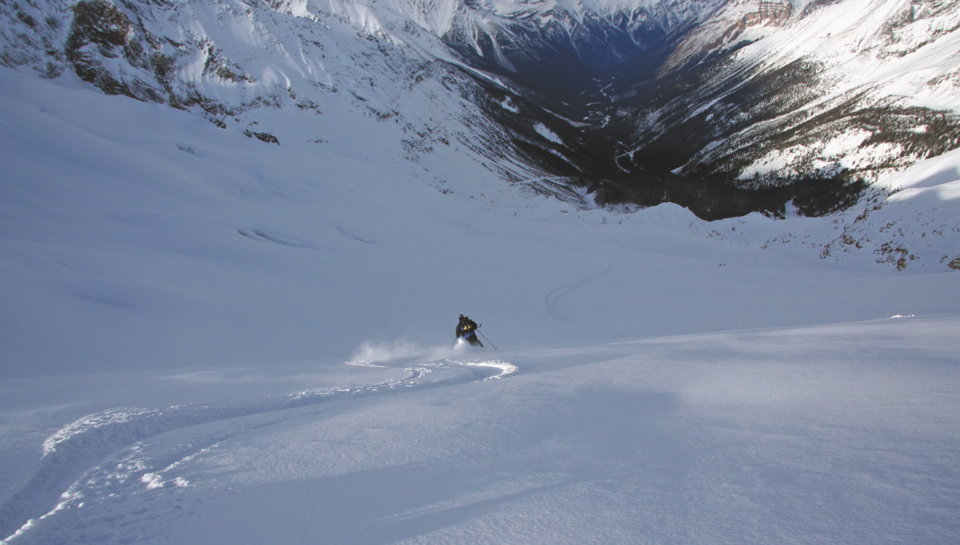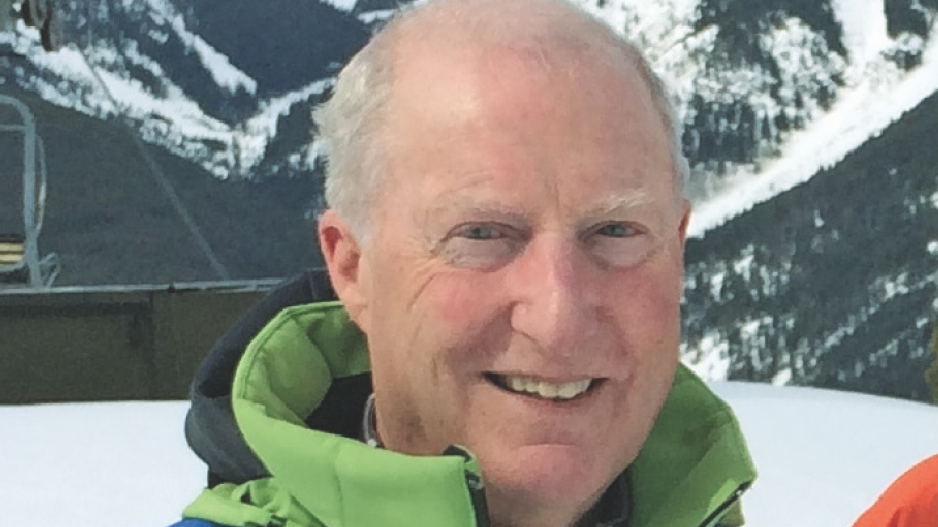Developers building a ski resort on Jumbo Mountain in the Kootenays couldn’t be happier that much of the province is experiencing one of its warmest winters on record.
Warm winter weather only bolsters their business case for the Jumbo Glacier Resort (JGR), which, because of its high elevation, is less vulnerable to unseasonable temperatures and is planned to be open for skiing year-round.
And while the project faces continuing court challenges from various groups, Glacier Resorts Ltd. is confident that after decades of planning, construction will be able to continue so the resort can open for its first skiers by the fall of 2016.
“Weather conditions have created hardship for a great number of ski resorts in western North America,” Glacier senior vice-president Grant Costello told Business in Vancouver. “Jumbo has unbelievably good conditions now, so that just speaks to the strong fundamentals of our project.”
Indeed, heli-skiers spent February making videos of powder-skiing where future JGR runs are slated to be.
The controversial project’s opponents, meanwhile, spent February pursuing various lawsuits to prevent Glacier from developing what the project’s master plan says will eventually be 23 ski lifts, including a gondola that rises 3,000 metres in elevation, and accommodation for 5,500.
The Ktunaxa Nation, which is perhaps the project’s most vocal critic, is readying for a B.C. Court of Appeal date on March 20.
The court will hear the Ktunaxa’s appeal of a BC Supreme Court decision last April that Glacier Resorts had adequately consulted with First Nations. That disputed court ruling also held that Jumbo’s operation would not substantially interfere with Ktunaxa spiritual beliefs and practices – something the Ktunaxa strongly disagrees with.
Not all First Nations groups oppose the project, however. The Shuswap Indian Band, which also lays claim to the Jumbo Mountain site, supports JGR.
Other critics include local residents, area New Democratic Party MLA Norm Macdonald and environmental groups that would prefer to keep the area pristine.
The West Kootenay EcoSociety (WKE) on February 23 won what its lawyer, Jason Gratl, told BIV was a minor victory in getting the BC Supreme Court to delay a hearing by three months so the WKE has time to study modified documents related to its court case.
The WKE opposes and is trying to overturn the B.C. government’s November 2012 decision to create the 5,900-hectare Jumbo Glacier Resort municipality in the development site.
“Our challenge is to the B.C. legislature’s authority to create a municipality when there are no residents,” Gratl said.
The WKE argues that the province’s decision is undemocratic and unconstitutional and flouts administrative law.
Area mayors, such as Invermere’s Gerry Taft, are angry that the unpopulated municipality will receive $1 million in provincial funding in the next five years. The Union of British Columbia Municipalities unanimously voted last fall to oppose provincial funding of empty towns.
Costello remains confident despite these challenges.

He said that the BC Supreme Court’s February 23 decision to delay the WKE’s lawsuit was actually a victory for those who want the municipality to be created. That’s because in order for the WKE to get the delay, the group had to agree to a request from both government and municipality lawyers to drop a separate petition to get an injunction to stop the municipality from being able to operate.
Gratl retorted that this was not much of a concession because the WKE had not planned to proceed with that petition.
Whatever the outcome in the courts, Glacier Resorts will still have to overcome the hurdle of convincing the B.C. government that it has met its October 2014 environmental certificate deadline to make a “substantial start” to building the project.
Glacier Resorts last year poured foundations for a day lodge, utility building and ski lift.
If B.C. Environmental Assessment Office enforcement authorities and, ultimately, Environment Minister Mary Polak say that the work is sufficient to meet the official threshold of a “substantial start,” Glacier will then be granted a permanent continuation of its environmental approval.
Without that approval, construction will not be able to proceed.
“We think that the odds are in our favour because we did do substantial work so it’s hard to understand how they could rule otherwise,” Costello said.•




